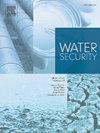More than Magnitude: Towards a multidimensional understanding of unprecedented weather to better support disaster management
IF 4.3
Q1 Earth and Planetary Sciences
引用次数: 0
Abstract
The 1900 Galveston Texas Hurricane, the 2021 Pacific Northwest heatwave, and the 2023 Tropical Cyclone Freddy were all events that were unprecedented in diverse ways and had severe humanitarian impacts. Understanding past and future risk of unprecedented weather is an emerging question across climate science disciplines but use of this research by the humanitarian sector has been limited. This cross-disciplinary paper is an effort by climate scientists and humanitarian practitioners to address this gap. For it, we combined narrative and scoping literature reviews with structured practitioner engagement to develop a working definition and typology of unprecedented weather through a disaster management lens. We qualitatively coded over 400 peer-reviewed articles to highlight the current state of research on unprecedented weather, and then discussed these findings in a workshop with 48 humanitarian practitioners. Our results show that, while analyses of past and future unprecedented weather often focus on the magnitude of such events, extreme weather can be unprecedented in many other dimensions, all which have significant implications for early warning, anticipatory action, and disaster response planning. We conclude with a call for more imagination and diversity in research on extreme weather risks, and for closer collaboration between climate scientists and disaster managers to design and answer questions that matter for humanitarian outcomes.
不仅仅是震级:多维度了解前所未有的天气,更好地支持灾害管理
1900 年的德克萨斯加尔维斯顿飓风、2021 年的西北太平洋热浪和 2023 年的热带气旋弗雷迪都是前所未有的事件,在不同方面造成了严重的人道主义影响。了解前所未有的天气过去和未来的风险是气候科学各学科的一个新问题,但人道主义部门对这一研究的利用却很有限。这篇跨学科论文是气候科学家和人道主义工作者为填补这一空白而做出的努力。为此,我们将叙述性和范围性文献综述与有组织的实践者参与相结合,从灾害管理的视角对前所未有的天气进行了工作定义和分类。我们对 400 多篇同行评议文章进行了定性编码,以突出前所未有天气的研究现状,然后在一次研讨会上与 48 名人道主义工作者讨论了这些发现。我们的研究结果表明,虽然对过去和未来史无前例的天气的分析往往侧重于此类事件的严重程度,但极端天气在许多其他方面也可能是史无前例的,所有这些都对预警、预测行动和灾害响应规划具有重大影响。最后,我们呼吁对极端天气风险的研究要有更多的想象力和多样性,气候科学家和灾害管理者之间要更紧密地合作,以设计和回答对人道主义成果至关重要的问题。
本文章由计算机程序翻译,如有差异,请以英文原文为准。
求助全文
约1分钟内获得全文
求助全文
来源期刊

Water Security
Earth and Planetary Sciences-Oceanography
CiteScore
8.50
自引率
0.00%
发文量
17
期刊介绍:
Water Security aims to publish papers that contribute to a better understanding of the economic, social, biophysical, technological, and institutional influencers of current and future global water security. At the same time the journal intends to stimulate debate, backed by science, with strong interdisciplinary connections. The goal is to publish concise and timely reviews and synthesis articles about research covering the following elements of water security: -Shortage- Flooding- Governance- Health and Sanitation
 求助内容:
求助内容: 应助结果提醒方式:
应助结果提醒方式:


